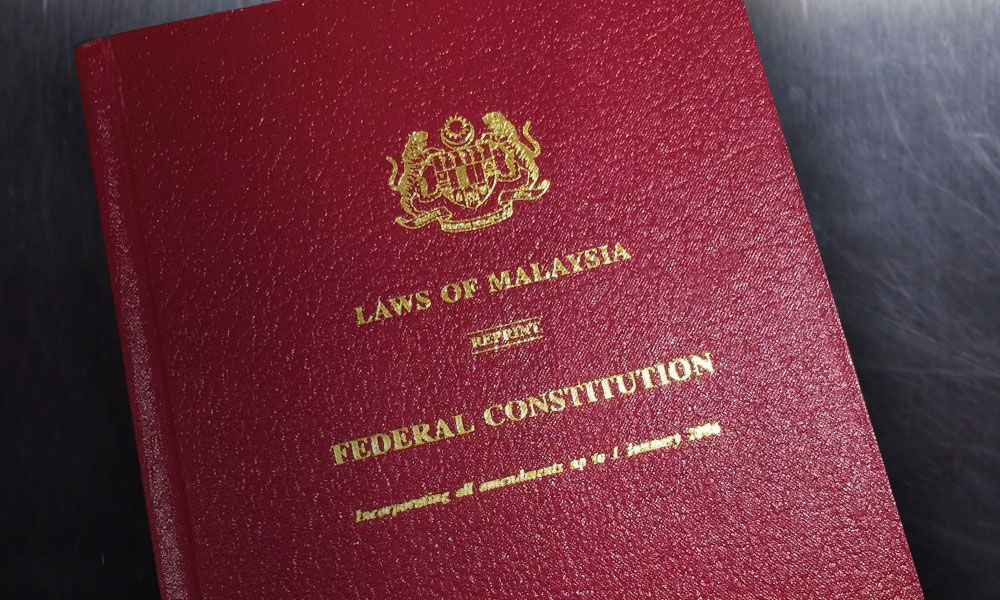Does Parliament have the power to pass a resolution to suspend itself?
If the answer is no, then the current suspension of Parliament is unconstitutional, as will be explained later.
I contend that Parliament cannot suspend itself, for two reasons:
- For a momentous decision like the suspension of Parliament, there must be a provision in the Federal Constitution prescribing how such an event can take place. But there is none.
- It is obvious from the wording of the entire Article 150 of the Federal Constitution that provides for the proclamation of emergency and its subsequent operations, that the writer of the constitution had made the basic assumption that there is a running Parliament throughout the emergency. If Parliament can be suspended, Article 150 and its many clauses would surely not have been written the way they were written.
Parliament has no power to suspend itself
Hence, it is reasonable to deduce that Parliament cannot suspend itself, though it can be dissolved by the Agong when so advised by the executive.
Following this conclusion, the next question would be: Why should the suspension of Parliament during an emergency operation be deemed unconstitutional just because Parliament cannot pass a law to suspend itself?
The answer lies in Clause 2(C) of Article 150, which accords the Agong the same power to make laws during the emergency as that accorded to Parliament (keeping in mind that the Agong is always acting under the advice of the executive under this clause). In other words, whatever legislative power Parliament has, so does the Agong; no more, no less.
And since Parliament cannot suspends itself, neither can the Agong (meaning the executive) do so under Article 2(B) of Article 150.

The inclusion of Section 14 in the Emergency (Essential Powers) Ordinance 2021 (enacted through Article 2(B) of Article 150) that has effectively suspended Parliament is hence unconstitutional.
Further, Clause 3 of Article 150 stipulates that both the proclamation of emergency under Clause 1 and the subsequent promulgation of an ordinance (making of emergency laws) under Clause 2(B) shall be laid before Parliament for its approval or rejection.
But how could Parliament do so, if it is already suspended at the outset of emergency like it has happened now?
Isn’t it obvious that Section 14 of the Emergency (Essential Powers) Ordinance 2021 is repugnant to Clause 3 of Article 150 of the Federal Constitution?
Absurd and unprecedented
The absurdity of Perikatan Nasional government’s suspension of our Parliament is further seen from the fact that none of the other countries suffering many times more severe attack of Covic-19 than our country has resorted to suspending its Parliament as a strategy to overcome the pandemic.
From the historical perspective, the importance of a functioning Parliament to a democratic country under severe stresses was most vividly demonstrated in the UK Parliament during World War Two.
Even at the height of the war when London was subject to heavy bombardment every night by Germany, Parliament was functioning throughout and was in fact used as the major platform for Prime Minister Winston Churchill to rally the entire nation to fight valiantly against the enemy.
If Prime Minister Muhyiddin Yassin truly loves this country, he should not hesitate to advise the Agong to rescind the enactment that suspended our Parliament.
Failing which, Pakatan Harapan should apply to the court forthwith to declare such enactment unconstitutional and null and void.
KIM QUEK is the author of the banned book “The March to Putrajaya”, and best-seller “Where to, Malaysia?” - Mkini
The views expressed here are those of the author/contributor and do not necessarily represent the views of MMKtT.




No comments:
Post a Comment
Note: Only a member of this blog may post a comment.